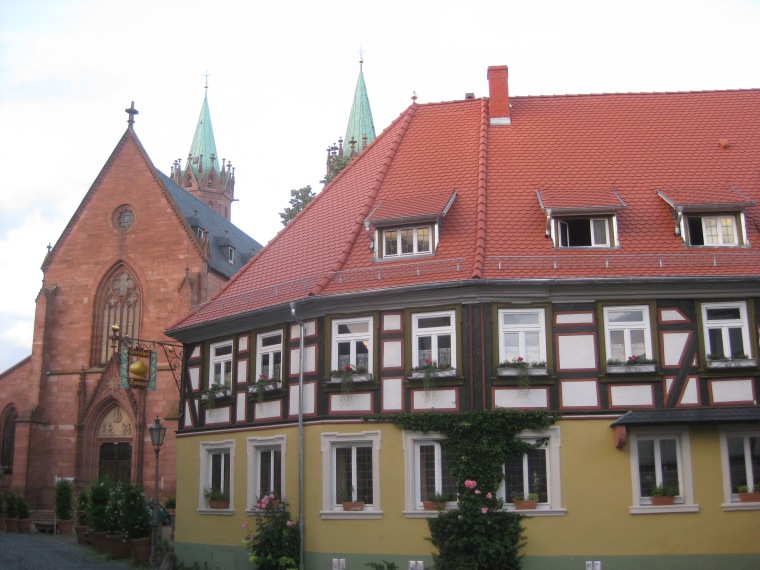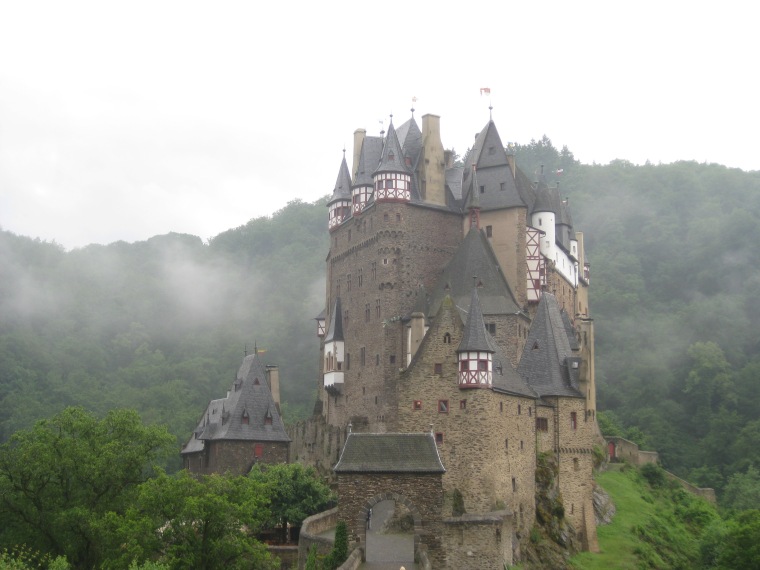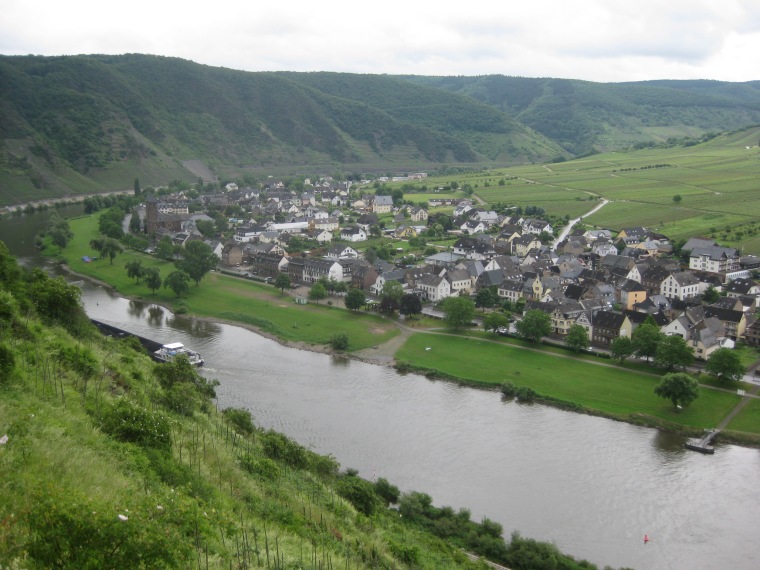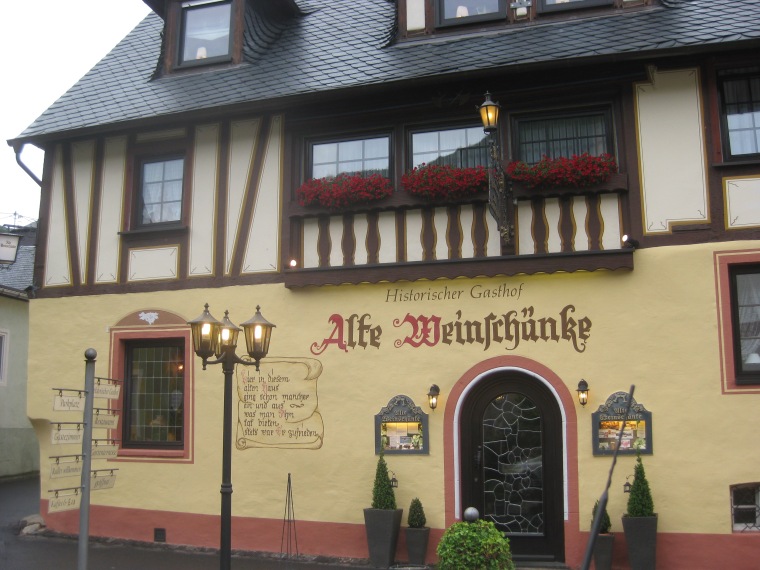On Saturday morning, after Andrew whips up golden squares of tangy french toast and the kitchen is set back to clean, we’ll drink a third cup of coffee and laze peacefully as the sun streams into our east facing windows. Sometimes we sit at the table and chat about our day, what we’ll do, whether we have obligations or if we’re free to nap and catch up on our Netflix queue. Other times, Andrew lugs his laptop over to the couch while I stay and read at the table. I’ve noticed how acutely his behavior changes when he props up on the blue hand-me-down sofa. His feet quit moving and his fingers aren’t tapping rapidly over the keyboard. He holds his coffee up to his face, feels the steam rise up over his forehead and stares intently at the screen. His eyes glint or he’ll chuckle in disbelief, and I know there is only one thing he could be doing. Reading wiki travel forums, he’s thinking about the lowest price he’s seen on a flight to Montevideo recently, or about what certain phrases in Spanish are inappropriate to say in Mexico. He’s left Knoxville, vacated our square patch of space on the 7th floor, and flown to south to Sao Paolo or east across the Atlantic to Pamplona.

As much as Andrew loves the rush of boarding a plane to step out into the chaos of another country, figuring out exactly where to stay and researching the history of our latest destination is just as exhilarating for him. He joyously scours forums for the cheapest flight he can find to a location he considers worth our time and pushes the buy button faster than I can decide whether I’ll wear that $35 pair of shoes at TJMAXX enough to justify the purchase. Once our destination is set, the real challenge begins: choosing the perfect accommodation. With regular folks’ uncensored opinions about their experiences on major booking sites, not only do you have a good idea of what to expect when you get there, choosing a hotel is also entertaining. Other travelers readily share whether the receptionist is a pig or the most helpful lass on Main Street, whether the double bed that was advertised is the size of a twin bed and lumpier than cottage cheese, and most importantly, if the breakfast consisted of day old pastries from a package and reheated coffee or if the hard cooked eggs came to the table warm and with hand-whipped butter for your toast.

Three requirements sit at the top of Andrew’s list when choosing a hotel: it must have a buen relación calidad precio, (a useful Spanish phrase that tells of the price to quality ratio) be spotless (ok, my requirement-which is probably the first to suffer as we’ve definitely found that stray hair tucked between the sheets or stuck to the side of the bathtub) and have a hearty breakfast included. Scouting out the place that meets all three criteria requires patience, vigilance and intuition that only a real deal hunting traveler has. When all the factors align to allow us to check into the perfect accommodation on our budget travelling wallet, Andrew is pleasantly pleased with his effort and I’m happy to travel alongside another day.

Nowhere is it easier to find a bed and breakfast or small, family run hotel that meets all our criteria than in Germany. After all, German culture prizes cleanliness and efficiency, but also knows how to elaborate simple quality ingredients into a gourmet brunch. It would be a shame for you to not follow Andrew’s booking criteria when travelling in Germany. A small, sparse room, with comfortable bedding (practically every hotel in Germany makes the bed with a duvet cover for each guest and no sheets-it’s almost exotic) and a shining, well-equipped bathroom shouldn’t cost more than 70 euros, and then less if you decide to be a rural tourist. Your stay must include breakfast, as this is an ideal time to, hopefully, speak a little with the owners of the establishment and to observe other German tourists shamelessly feast for longer than you thought possible at the breakfast table.

The breakfast itself is what is truly impressive though. Platters of cold cuts chilling over trays of ice and thin slices of mild cheese to start, along with wedges of tomato and rounds of cucumbers, fresh baked brötchen from the local Bäckerei, made with nutrient rich whole wheat flour and flecked with seeds, smeared with rich, creamy butter. Ramekins of homemade jams made with fruit picked from the backyard are a staple of the buffet and a hard-boiled egg, flawless white with the yolk bold yellow, still warm inside mean a genuine Deutsches frühstuck. For the second round helping, a dish of whole milk plain yogurt, crunchy granola and berries the color of sparkling rubies. Equally as good as the food is the coffee, from a french press or a drip-pot, but brewed with beans that were ground that very morning and served in your own carafe to keep at your table. Andrew’s french toast is mighty tasty and a German breakfast tops them all.
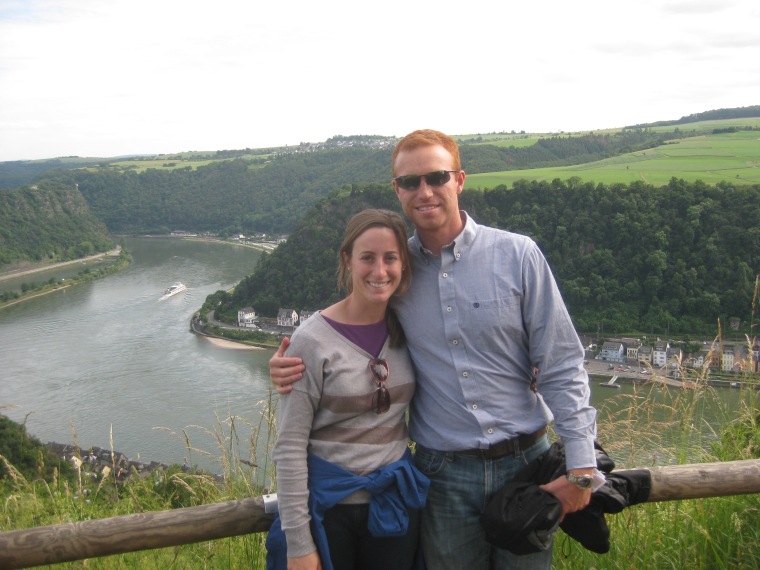
After indulging in sticky sweet jams and warm buttered rolls, it’s out into the new adventure awaiting us outside the hotel. And, while our hotel booking requirements may seem stringent, they do help keep us well-rested and well-caffeinated, two essentials of a vacation that bring happy, HD color memories.

